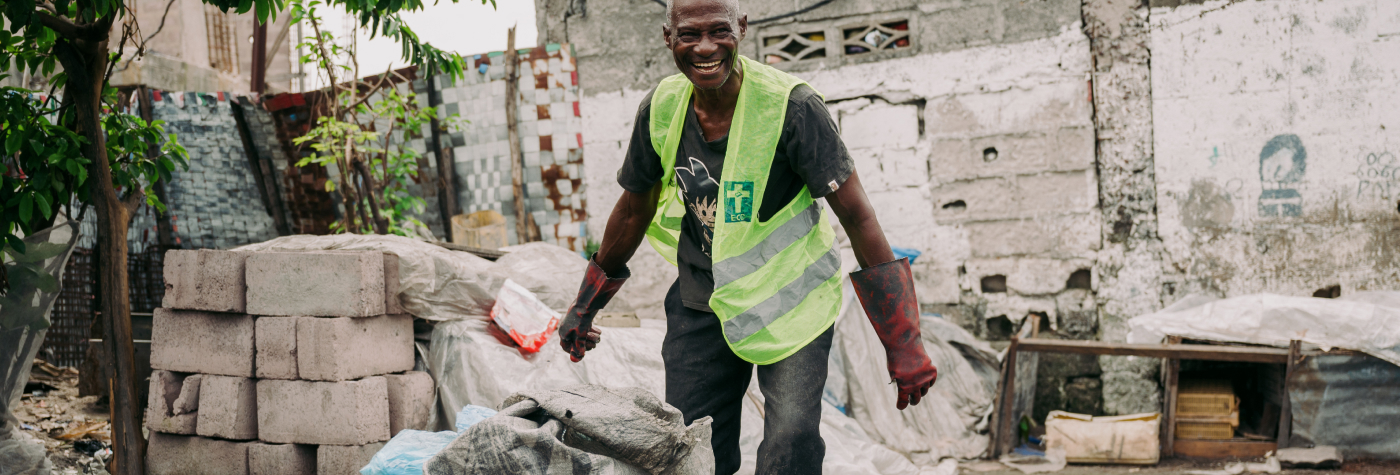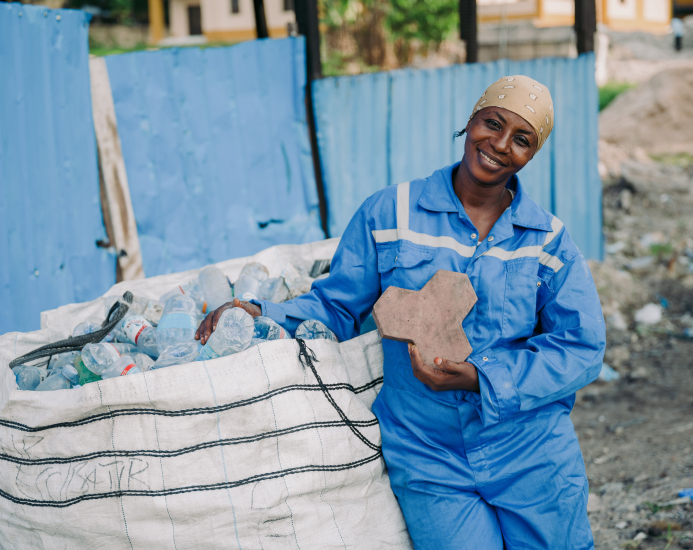Bin Twinning has closed.
But, Tearfund’s work with
plastic pollution continues
From September 2020 to May 2023, Bin Twinning raised funds to support the work of international development charity Tearfund. Tearfund’s global network of social enterprises are doing amazing work to save lives, protect the planet and create thousands of jobs in waste collection.
Every pound you have donated to Bin Twinning has gone to support Tearfund’s work with world-changing, plastic-clearing, recycling, reusing, climate-loving social enterprises.
While Bin Twinning is now closed, the work that Bin Twinning has been funding won’t be stopping. The social enterprises aren’t going anywhere!

FAQs
Why has Bin Twinning closed?
Charities across the UK face enormous post-pandemic challenges, and Bin Twinning’s parent charity, Tearfund, has to make wise stewardship decisions concerning its resources.
Tearfund has taken the difficult decision to close down the Bin Twinning fundraising campaign. They will be focusing on other fundraising campaigns to support their growing network of social enterprises that are setting up rubbish collections and recycling services.
What about my recent donation to Bin Twinning?
Tearfund’s network of social enterprises continues to do extraordinary work tackling the growing mountains of global plastic waste.
Your donation is already hard at work to tackle plastic poverty in the seven countries of Pakistan, Haiti, Uganda, Nigeria, Democratic Republic of Congo, Nepal and Bangladesh.
I’ve held a fundraising event. What do I do with the funds?
Our parent charity Tearfund continues to fund the works of its growing network of social enterprises providing jobs for waste collectors and turning plastic pollution into usable, practical, sustainable objects.
To pay your donation, and give to the work that Bin Twinning has been supporting, please go to Tearfund’s website or call Tearfund’s Supporter Enquiries Team on 020 3906 3906.
Can I still display my sticker on my bin?
Tearfund’s network of social enterprises continue to do their extraordinary work to tackle the growing mountains of global plastic waste. So, yes – display your sticker with pride!
I thought plastic pollution was a big concern of Tearfund. Has this changed?
No. Economic and Environmental Sustainability continues to be one of Tearfund’s strategic priorities. The work continues.
Read about Tearfund’s Rubbish Campaign on their website.
Tearfund has taken the difficult decision to close down Bin Twinning as a fundraising campaign, as it will raise funds through different campaigns going forward. But tackling plastic pollution remains a top priority, and the social enterprises continue to carry out their groundbreaking work in Pakistan, Haiti, Uganda, Nigeria, Democratic Republic of Congo, Nepal and Bangladesh.If you wish to continue funding this work, please go to www.tearfund.org or call 020 3906 3906.
Read about Tearfund’s Rubbish Campaign on their website
Read now!